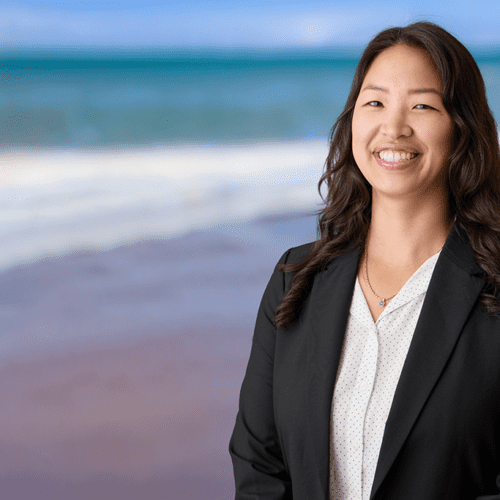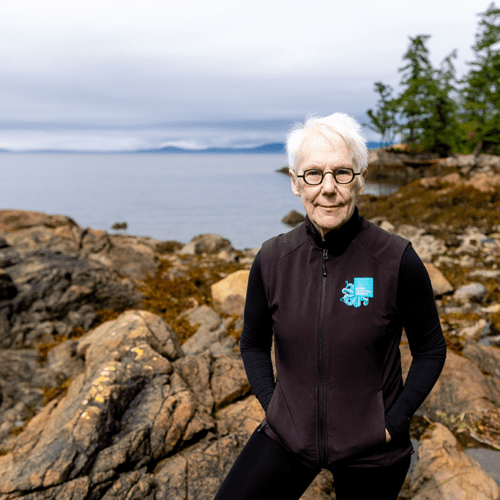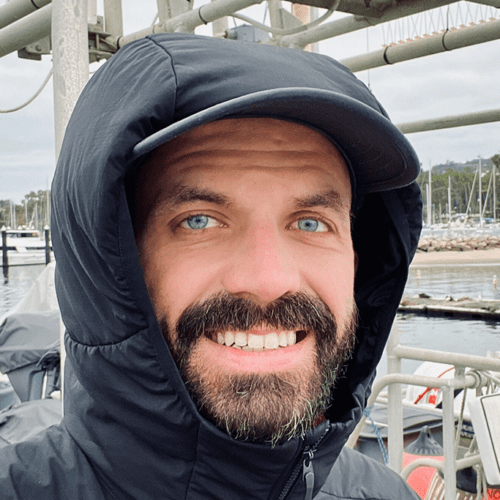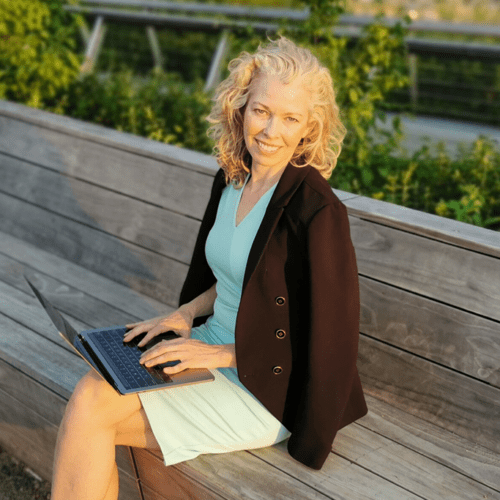Dr. Mariam Swaleh
Ocean-Climate Innovation Fellow & Ocean-Climate Innovation Hub Kenya Project Lead
Dr. Swaleh is an international advocate for the inclusion of the Global South in the advancement of ocean-climate solutions, having spoken at international ocean sciences events in the US (Ocean Sciences Meeting), Spain (UN Ocean Decade Conference), and Indonesia (Global Dialogue on Sustainable Ocean Development). She is an Ocean Visions’ Ocean-Climate Innovation Fellow & Project Lead for Ocean Climate Innovation Hub Kenya—supported by Ocean Visions’ Global Ecosystem for Ocean Solutions (GEOS) program.
Waves of Frontline Wisdom: International collaboration and inclusion
Growing up in Kenyan coastal city of Mombasa, I developed a deep connection to the ocean and its surrounding communities. Witnessing the significant pollution challenges the city faces, particularly how it impacts the marine environment, fueled my passion for environmental research. My PhD research focused on using microalgae for sustainable wastewater treatment, tackling both pollution and climate change through biofuel production from the resulting biomass. My research interests also led me to work closely with the local community, fostering a deeper understanding of the challenges they faced. The experience proved invaluable, allowing me to connect with climate organizations like PanAfrican Climate Justice (PACJA) and the African Climate and Environment Foundation (ACEF).

There’s a Swahili proverb: Umoja ni Nguvu, simply meaning “Unity is Strength.” Through Ocean Visions and our international Hubs, I believe if we work together, especially on important issues like climate change, real change will come.

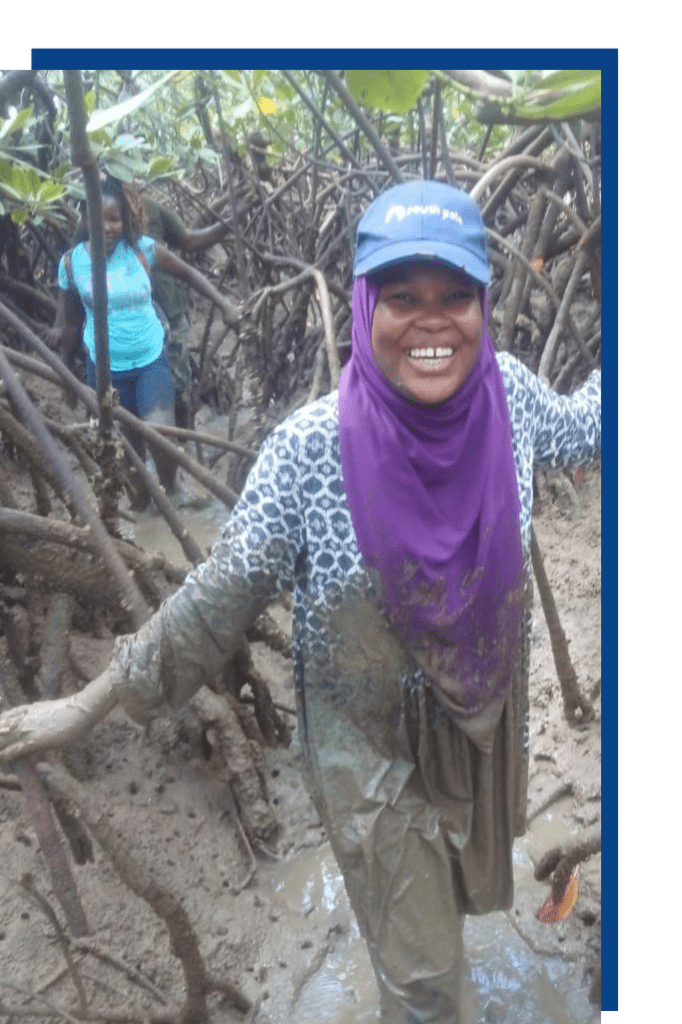
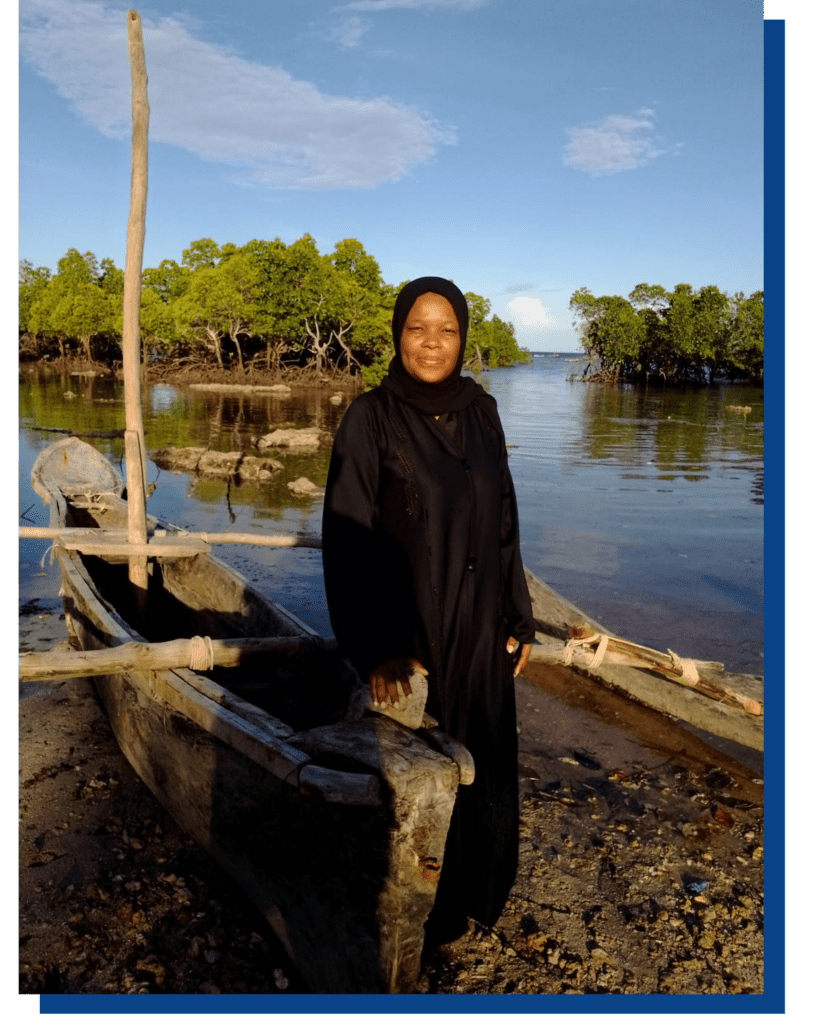
This experience solidified my belief in the importance of ocean literacy. Through my involvement with Trash Talk in Action, I effectively convey this message. Ocean literacy is crucial for everyone, from primary and secondary school students to university students, as it fosters a deeper understanding of the vital role the ocean plays in our lives and the importance of protecting it. I am passionate about teaching the blue economy and exploring questions such as: What resources does the ocean offer? What are the job opportunities for income generation while still having a responsible impact?

I’m driven by a passion to empower communities by fostering understanding of how their actions connect to the health of the ocean, our climate and blue economy.

The ocean provides a lifeline for many coastal communities, offering sustenance through fishing and building materials or firewood from mangroves. I’m driven by a passion to empower communities by fostering understanding of how their actions connect to the health of the ocean, our climate and blue economy. My goals is to collaborate with communities, exploring sustainable practices that will ensure that they can provide for their families while safeguarding this vital ecological and economic resource for the future. By addressing climate change, we can implement strategies that not only mitigate its impacts, but also enhance the resilience of the coastal ecosystems and the communities that depend on them.
The Ocean Climate Innovation Hub Kenya as a Platform for New Voices, Connections, and Support
It’s not just about being part of the conversation, it’s about taking action together and making sure our actions are impactful.
Ocean Visions started working with Early Career Ocean Professionals – Kenya in early 2023 to co-design a hub there. My peers nominated me as the best person to coordinate and lead the Ocean Climate Innovation Hub in Kenya through the Global Ecosystem of Ocean Solutions (GEOS) program. It was through this connection that Ocean Visions invited me to speak on a panel about the importance of ocean education, during the Africa Climate Summit in Nairobi.
Our Kenya Hub is made up of researchers, the private sector, and local NGOs and community-based organizations. We are bringing folks from diverse backgrounds to build a blue economy that’s relevant to tackle the climate crisis. We’re involved in exciting collaborations like international science experiments testing ocean alkalinity enhancement. But our work is more than climate science. It’s about social science, behavioral chance, educating kids, and building ocean and climate literacy.

The climate crisis is affecting us all over the world – and no one should be left out of the conversation. Folks often say that there’s few ocean scientists in the Global South. But the real question is: Are we being invited?

The GEOS program is great because it’s an opportunity to share our own locally led solutions to climate change. The Hub is more than a support for each other as brilliant innovators and scientists. We often don’t have the resources to bring our own solutions to light. Sometimes we don’t have the platform or the right audiences to share our ideas with. The Hub gives us that platform.
Ocean Visions helps us with the connections we need – to get funding, to find collaboration partners on projects. Not only are we connecting in-person at events, but also online to understand what’s happening in Ghana, Tanzania, Colombia, Costa Rica and elsewhere, to discuss ideas and share experiences.
The Need for Research Funding - and Making do Without
After coming to the US to present at the American Geophysical Union’s Ocean Sciences Meeting with support from Ocean Visions and Carbon to Sea, I started a program at the university for ocean-climate solutions. However, research for such solutions takes time and resources.
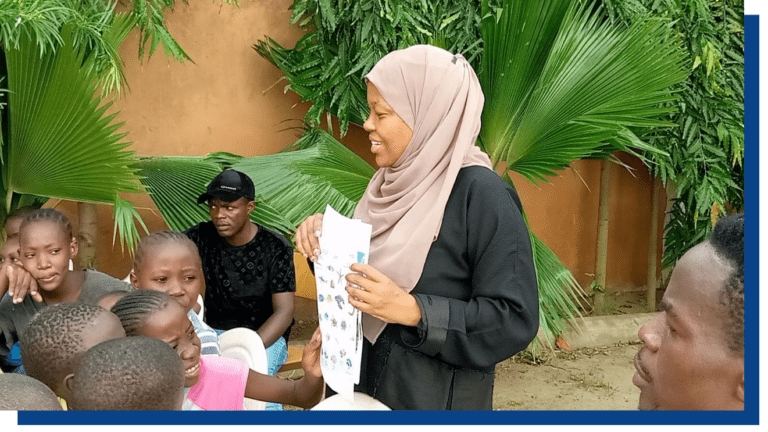

A lot of support is needed to build infrastructure and fund institutes like Technical University of Mombasa and Kenya Marine Fisheries. With Ocean Visions’ support, we’re currently applying for funding.

We have untapped potential. This work feels ambitious. But I believe that if I don’t dream things up, visualize them, write them down and talk about them, we don’t get to actualize them.
While we search for adequate funding to scale up our initiatives, I work with colleagues and my masters and graduate students on various projects addressing climate and ocean issues. Some examples include:
- Utilizing Sargassum: Transforming the seaweed that washes up onshore into skincare products.
- Marine Waste Briquettes: Converting marine waste into briquettes to provide an alternative cooking fuel, reducing the need to cut down mangroves.
We conduct these projects using our existing lab facilities and resources, without external funding. To advance our research on ocean-climate solutions, securing funding is crucial. It allows us to pursue more sophisticated projects and gives us the confidence to revisit and improve upon our work when we encounter dead-ends or mistakes.
We would like to make sure that our research is useful, meaningful and impactful – and not just for us, but for the whole community. We can’t slow down. Climate impacts are severe. The petroleum industry is not stopping. As we wait for funding and endure climate impacts we are doing our best to research ocean-climate solutions that can make an actual difference.
